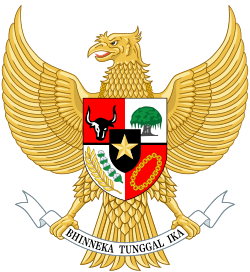Ministry of Foreign Affairs (Indonesia)
| Kementerian Luar Negeri | |
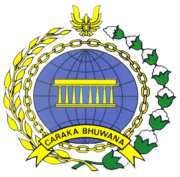 | |
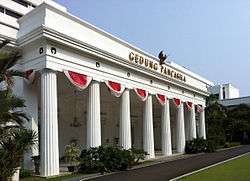 Gedung Pancasila, part of the Ministry of Foreign Affairs' building complex. | |
| Ministry overview | |
|---|---|
| Formed | 19 August 1945 |
| Jurisdiction | Government of Indonesia |
| Headquarters |
Jalan Pejambon No. 6 Jakarta Pusat 10110 Jakarta, Indonesia |
| Ministers responsible |
|
| Ministry executives |
|
| Website |
www |
The Ministry of Foreign Affairs of the Republic of Indonesia (Indonesian: Kementerian Luar Negeri Republik Indonesia) is a government ministry responsible for the country's foreign politics. The ministry was formerly known as the Department of Foreign Affairs (Departemen Luar Negeri Republik Indonesia, better known as Deplu).
The name changed due to the new law about State Ministry of 2008 (UU 39/2008).
Ministry of Foreign Affairs is one of the ministries (along with Ministry of Defense and Ministry Home Affairs) that is mentioned in the Constitution of Indonesia, so the president has no authority to dissolve this ministry, compared to other ministries that are not mentioned in the Constitution of Indonesia.
In the case that both of the president and the vice president can no longer serve at the same time, the line of succession falls to the minister of foreign affairs, minister of home affairs and minister of defence concurrently until the succeeding President and Vice President are elected by the People's Consultative Assembly within thirty days.[1]
Since October 2014, Retno Marsudi has served as Foreign Minister, succeeding Marty Natalegawa.
History
The Ministry of Foreign Affairs was founded in 1945 following the Proclamation of Indonesian Independence from the Netherlands.[2] The headquarters was initially located in the garage of the country's first Foreign Minister, Achmad Soebardjo, at Jl. Cikini 80-82 in Jakarta.[2] The Ministry started with just six employees, including Hadi Thayeb.[2]
Organizational structure
The structure of Foreign Affairs Ministry of Indonesia is as follows:
| Minister | Rank | Portfolio | |
|---|---|---|---|
| Retno Marsudi | Minister | Overall responsibility | |
| Abdurrahman Mohammad Fachir | Deputy Minister of Foreign Affairs | ||
| Mayerfas | Secretary General of Foreign Affairs | ||
| Desra Percaya | Director General for Asia Pacific and African Affairs | Asia Pacific and Africa[3] | |
| Muhammad Anshor | Director General of American and European Affairs | America and European[3] | |
| Jose Antonio Morato Tavares | Director General for ASEAN Cooperation | South East Asian countries[3] | |
| Febrian Alphyanto Ruddyard | Director General for Multilateral Affairs | ||
| Cecep Herawan | Director General for Information and Public Diplomacy | ||
| Dr. iur. Damos Dumoli Agusman, SH, MA | Director General for Legal Affairs and International Treaties | ||
| Andri Hadi | Director General for Protocol and Consular Affairs | ||
| Rachmat Budiman | Inspector General of Foreign Affairs | ||
| Siswo Pramono | Head of Policy Analysis and Development Agency | ||
| Ridwan Hassan | Special Advisor to the Minister on Economic Diplomacy | ||
| Salman Al Farisi, S.E | Special Advisor to the Minister on Institutional Relations | ||
| Wajid Fauzi | Special Advisor to the Minister on Management | ||
| Prianti Gagarin Djatmiko Singgih | Special Advisor to the Minister on International Politics, Law, and Security | ||
| Mahendra Siregar | Special Advisor to the Minister on Priority Programs Strengthening | ||
History
The task and duty of Ministry of Foreign Affairs is different from time to time, is as follows:
1945–50
Their main duty through the aid of diplomacy:
- Making every effort to gain sympathy and support from international community, building solidarity from partners of various fields through any effort to gain support and acknowledgement upon Indonesia’s independence
- Conducting conferences and making agreements on:
- 1947 – Linggarjati Agreement – acknowledgement upon the Republic of Indonesia, which covered Java and Madura
- 1948 – Renville Agreement – acknowledgement upon the Republic of Indonesia, which covered Java and Sumatera
- 1949 – Round Table Conference – Indonesia was in the form of Federal State
- 1950 Indonesia’s diplomacy has restored the unity of all the regions in the republic of Indonesia by revoking the Round Table Conference.
The first five-year period of Indonesia’s independence was a period which decided the struggle to maintain the independence which was a part of the history to decide the character or the nature of Indonesia's foreign policy.
The spirit of Struggle Diplomacy has made Indonesia attain support from international community of the United Nations in the year 1950.
1966–98
The prominent duties are:
- The acknowledgement of West Irian
- The acknowledgement of Indonesia as an archipelagic country as the result of the struggle of the law of the sea – UNCLOS (United Nation Convention on Law of the Sea)
- The development of ASEAN Cooperation
- Making the effort of gaining international acknowledgement on East Timor
- Being the chairman to Non-Aligned Movement to struggle for the sake of developing countries
- Being the chairman to APEC and G-15
- Improving the co-operation of development
1998–present
The main duty is directed to:
- Prevent nation disintegration potential
- Attempt to help economic recovery
- Attempt to improve the image of Indonesia
- Improve the quality of serving and protecting the citizens of Indonesia
List of ministers
| # | Portrait | Minister | Term Start | Term End |
|---|---|---|---|---|
| 1 | 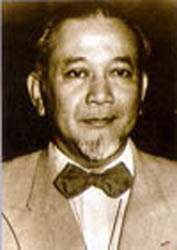 |
Achmad Soebardjo | ||
| 2 | 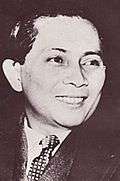 |
Sutan Sjahrir | ||
| 3 | 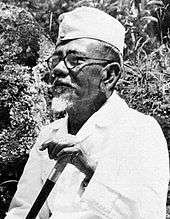 |
Agus Salim | ||
| — | Alexander Andries Maramis | |||
| (3) |  |
Agus Salim | ||
| — | 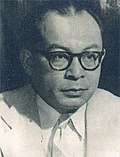 |
Mohammad Hatta | ||
| 4 | 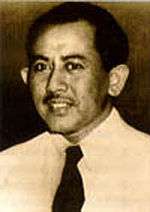 |
Mohammad Roem | ||
| (1) |  |
Achmad Soebardjo | ||
| 5 | 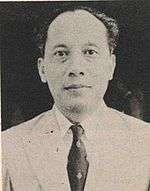 |
Wilopo | ||
| 6 | Moekarto Notowidigdo | |||
| 7 | Soenario | |||
| 8 | Ida Anak Agung Gde Agung | |||
| 9 |  |
Ruslan Abdulgani | ||
| 10 |  |
Subandrio | ||
| 11 | 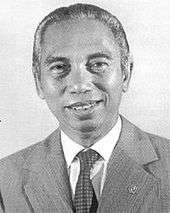 |
Adam Malik | ||
| 12 | .jpg) |
Mochtar Kusumaatmadja | ||
| 13 | 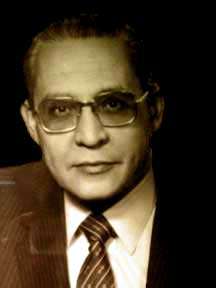 |
Ali Alatas | ||
| 14 |  |
Alwi Shihab | ||
| 15 | 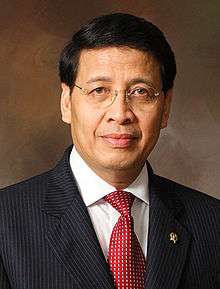 |
Hassan Wirajuda | ||
| 16 |  |
Marty Natalegawa | ||
| 17 | 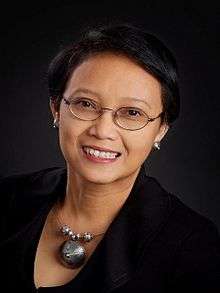 |
Retno Marsudi |
See also
Literature
- Nabbs-Keller, Greta (April 2013). "Reforming Indonesia's Foreign Ministry: Ideas, Organization and Leadership". Contemporary Southeast Asia. 35 (1): 56–82.
References
- ↑ Constitution of Indonesia, article 8 paragraph 3
- 1 2 3 "Senior diplomat Thayeb dies at 91". Jakarta Post. 11 January 2013. Retrieved 1 March 2014.
- 1 2 3 "Archived copy". Archived from the original on 7 March 2013. Retrieved 4 June 2013.
External links
- Ministry of Foreign Affairs (in English)
